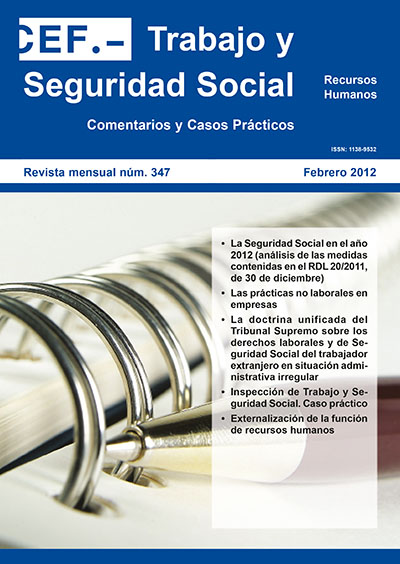The regulation of non-labour work experience in companies in Royal Decree 1543/2011: a substitute for the work-experience contract?
DOI:
https://doi.org/10.51302/rtss.2012.3293Keywords:
non-labour work experience, scholarships, promotion of employment and work-experience contractAbstract
Young people who have an accredited academic or vocational training but no work experience find it particular difficulty to integrate in the labour market. In this context, Royal Decree 1543/2011 of 31 October, regulating non-labour work experience in companies, is aimed at young people who have problems of employability because of their lack of work experience. To this end, the law aims to allow young people who have a university degree, vocational training or a professional certificate to gain experience in companies in order to improve their employability and make the first contact with the world of work while completing their training.
As can be seen, the measures adopted by Royal Decree 1543/2011 for achieving the above objectives do not consist in promoting the recruitment of these recent graduates by regulating specific contract types or incentives to recruitment, but rather in developing non-labour work experience. This way of promoting the employment of recent graduates, however, is very close to the work-experience contract, which can lead to situations of confusion between the two.
This paper analyzes the legal regime established in Royal Decree 1543/2011 for non-labour work-experience in companies by comparing it with the regulations on work-experience contracts. This will allow us to determine whether the two legal situations are totally differentiated or non-labour work experience in companies is merely a substitute for the work-experience contract through which young graduates will have to pass in order to gain access to the labour market.
Supporting Agencies
El autor es miembro del grupo de investigación consolidado reconocido por la Generalitat de Cataluña «Análisis Social y Organizativo» (2009 SGR 310)


















